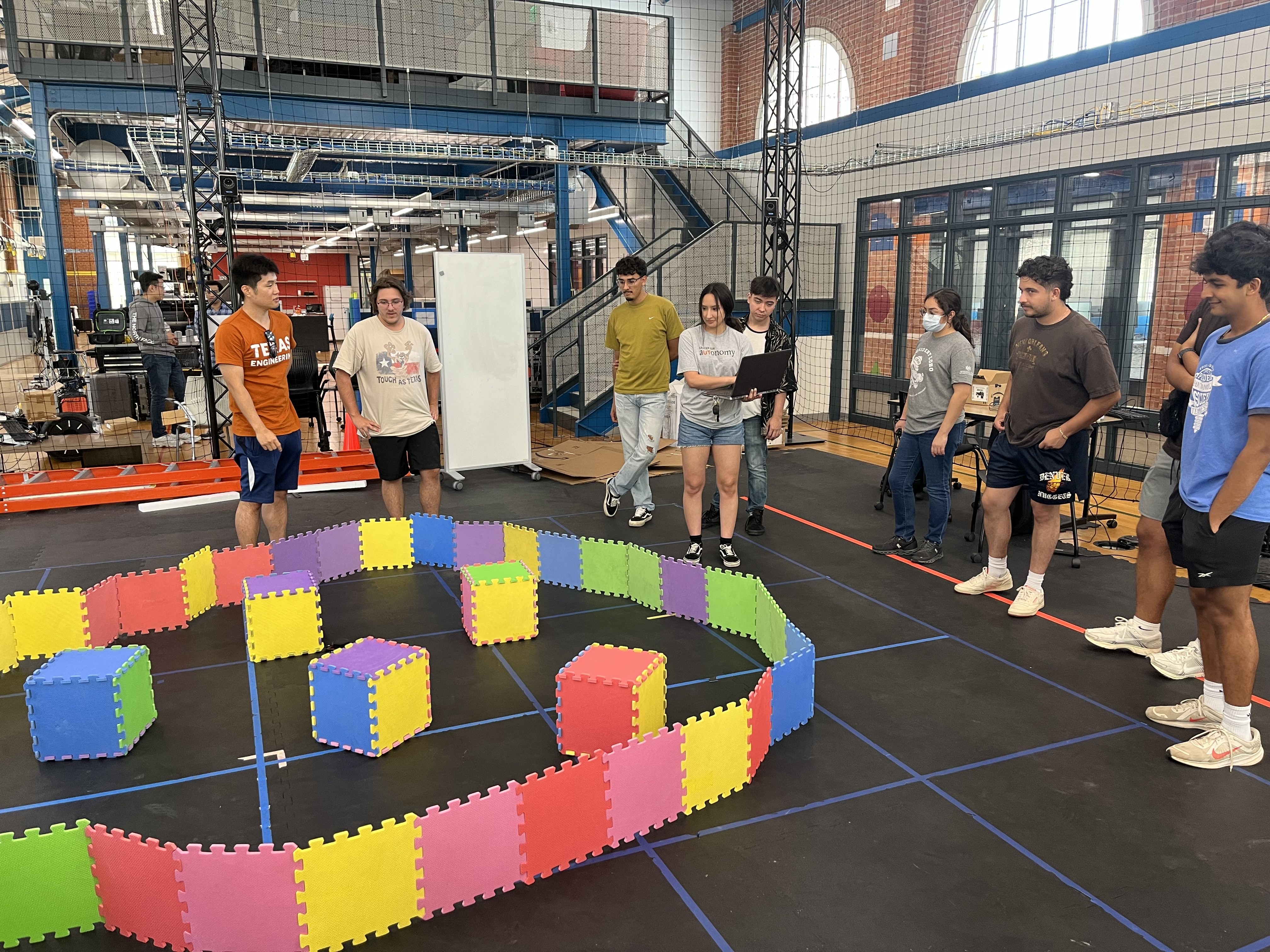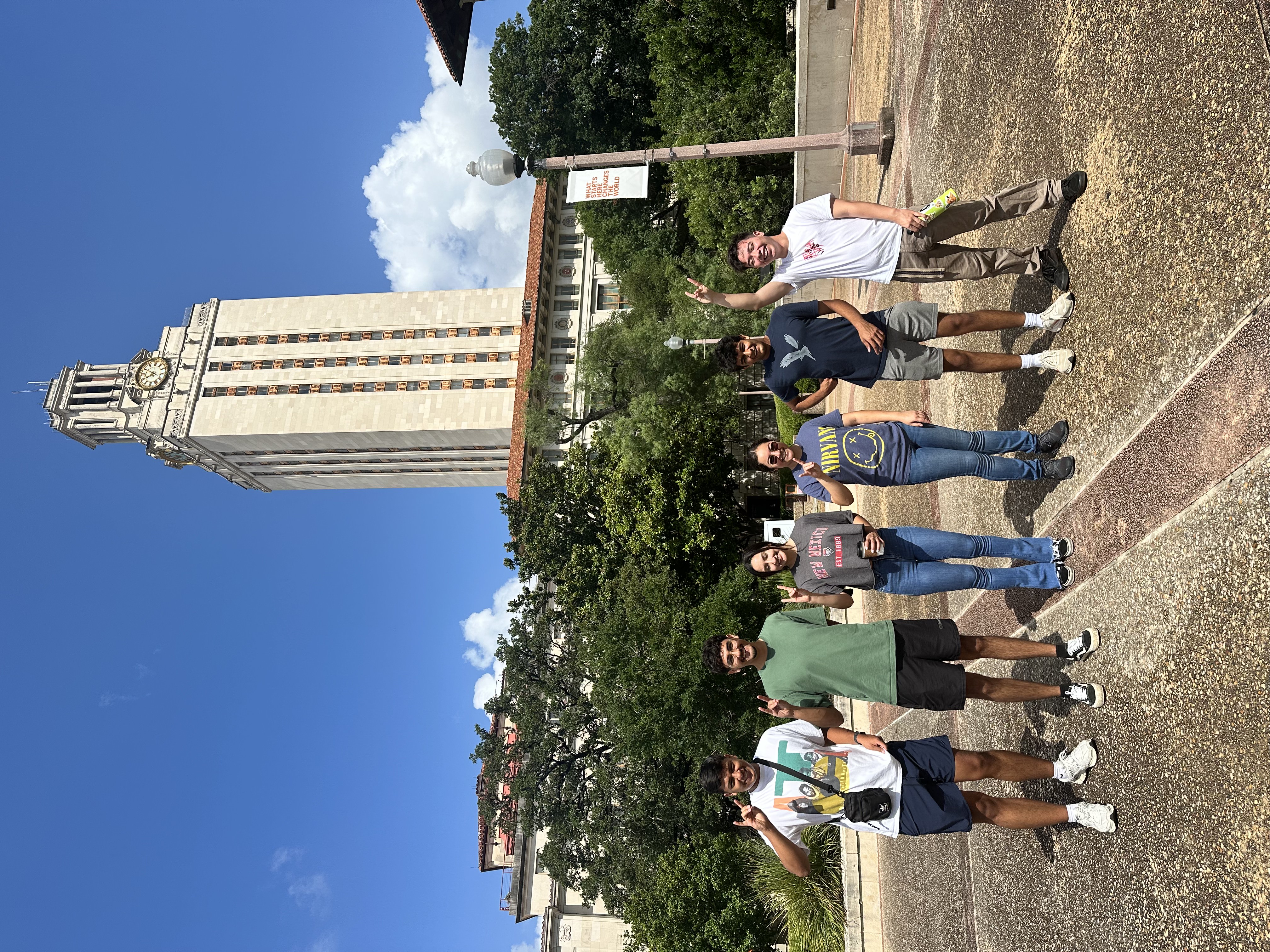This year’s participants worked on a variety of topics within the field of autonomous systems, all connected by a common theme of machine learning and artificial intelligence.
Arash Amini supervised participant Alanah Martinez to train a neural network to detect low credibility information on social media in order to provide an information quality check to users.
“I found the availability of my mentor very valuable because I typically find asking for help to be a task, so it was very much appreciated to feel comfortable asking him questions,” said Martinez.
Under Neel Bhatt’s supervision, Anay Patel used large language and vision assistant models to create robots that can autonomously deal with uncertainties in its perception. “The lab tours, workshops, and the TORC Robotics tour were super valuable. These things allowed me to see the applications of the research we were doing,” Patel said.
Mentor Tyler Ingebrand guided Kevin Rouzaud in the steps needed to apply machine learning to accomplish zero-shot and one-shot recognition of handwritten characters.
“It was fun to show my mentee what research is like in general, and what I am researching specifically. He did an awesome job on the project and got some exciting results. I hope I have inspired him to consider a career in research,” said Ingebrand.
Mentoring is a two-way street, beneficial to both the mentor and mentee. Research mentor Surya Murthy noted, “The REACT REU program is a great opportunity for undergraduate students to be exposed to graduate school.” Murthy collaborated with Omar Ornelas to apply carrier-sense multiple access with collision detection to enforce a safe separation constraint in an urban air mobility (UAM) simulation environment.
Tianyu Qiu and Dong Ho Lee supervised Koby Alejandro Perez and Angel Munoz in designing a closed-loop control algorithm to safely navigate a Turtlebot through a maze.
The program received great feedback from participants, inspiring students’ interest in graduate school and academia. “It made me interested in research and pursuing academia after my bachelor’s degree,” said Kerly Reyes. Mentor Abhishek Kulkarni coached Reyes on utilizing preference temporal logic to set preferences on a drone. The goal is to ensure the drone’s safety while determining a sequence for package delivery in a stochastic environment.
For those who are already interested in graduate school, the program provided valuable hands-on research experience.
“I definitely feel more prepared. The program allowed me to dip my toes in research and understand what I want to do with medical robotics in the future. I realized that there will be academic concepts that will seem complicated and difficult but I should trust the process and I will eventually understand it,” said Patel.
By engaging promising students in application based projects with strong mentor support, the Center for Autonomy’s REACT REU inspires the next generation of researchers.
REACT REU is funded through the NASA University Leadership Initiative in Safe Aviation Autonomy, the NASA University Leadership Initiative in Autonomous Systems, and the NSF CPS Frontier in Cognitive Autonomy.

